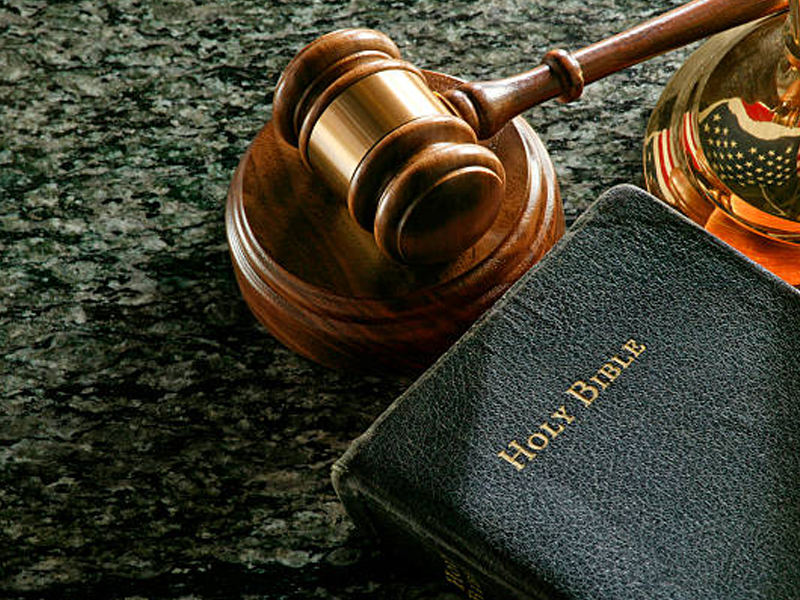
New Opportunities for Women-Owned Small Businesses in Government Contracting
Women own roughly twenty percent of all small businesses in the United States, but less than five percent of federal contracting dollars go to women-owned small businesses. To address this disparity, the Biden administration has made it a priority to further expand the women-owned small business Federal Contracting Program, which authorizes contracting officers to set aside certain federal contracts for eligible women-owned small businesses (WOSBs).
The eligibility requirements to qualify as a WOSB are set out in Title 13 Part 127 Subpart B of the Code of Federal Regulations (CFR). In brief summary, in order to be eligible for the WOSB Federal Contracting program, a business must:
- Be a small business according to Small Business Association (SBA) size standards (https://www.sba.gov/size-standards ),
- Be at least 51% owned and controlled by women who are U.S. citizens, and
- Have women manage day-to-day operations who also make long-term decisions for the business
Participating in the Small Business Administration’s (SBA’s) WOSB Program helps women-owned businesses compete for federal contracting set-asides, while still competing for contracts under other socio-economic programs for which they may be eligible. The benefits of this program are real. Nearly five thousand women-owned small businesses have been certified by the SBA to participate in the WOSB Program. In 2020, the federal government awarded $27.14 billion in federal contracts to WOSBs.
Recently, the SBA released an updated list of industries eligible for reserved federal contracting under the WOSB Program, reflecting a 70% increase. If you do business in an industry the was previously ineligible for set-asides, you may be pleasantly surprised to find new opportunities available to you. Just a few newly-eligible industries include:
- Temporary Help Services
- Home Health Care Services
- Electronic Computer Manufacturing
- Air Transportation Support
The updated list of eligible NAICS industries can be found at https://www.sba.gov/document/support–qualifying-naics-women-owned-small-business-federal-contracting-program.
SBA’s free online certification process for WOSBs is available at beta.certify.sba.gov.
Our firm can answer questions and provide legal guidance to women-owned small businesses that wish to take advantage of these programs. We also can assist those who wish to form a new WOSB. Please contact us at [email protected] or (410) 489-1996.

The New Buy American Rule, and What it Means for Your Business
There may seem that there isn’t much we all agree upon in American politics these days, but a glimmer of significant cooperation has continued across the Trump and Biden administrations in the government’s push to prioritize the use of domestic materials in federal infrastructure projects. A series of executive orders issued by both administrations has made substantial changes to the implementation of the Buy American Act (BAA) preferences that apply to government procurements.
The BAA was enacted in 1933, and urges the United States Government to buy American-made products by setting a price preference for offers of domestic end products. A “domestic end product” under the BAA is one that is manufactured in the United States for which the cost of domestic components must exceed a specified threshold.
For over sixty years, the domestic component threshold held steady at 50%. Former President Trump increased that threshold to 55% by executive order (subsequently implemented by the FAR Council), and now President Biden has further increased the threshold to 60%, effective in October 2022. The final FAR rule calls for additional increases to 65% in 2024, and to 75% in 2029.
Government contractors will generally need to comply with the threshold in effect in the year of delivery, although agencies can apply the threshold in effect at the time of contract award throughout the period of performance with approval by the senior procurement executive. A fallback threshold will be available for certain goods that are unavailable or unavailable at a reasonable cost until 2030.
These rules will apply to federal contractors performing contracts that are subject to the BAA. That includes contracts that are below the current Trade Agreements Act thresholds of $183,000 for supply contracts and $7.032 million for construction contracts, sole-source acquisitions, small business set-asides, and contracts for arms, ammunition, or war materials, and contracts indispensable for national security.
For federal contractors and subcontractors, this will mean reviewing supply chains to ensure compliance over the life of existing projects and to prepare new bids and proposals.
For manufacturers of domestic end products, and especially small businesses, these rule changes present a growth opportunity. Larger contractors are likely to want to incorporate more American-made products into their supply chains.
To prepare, make sure your business is properly registered with the Small Business Administration and the System for Award Management; familiarize yourself with the Cybersecurity Maturity Model Certification (CMMC) requirements for the contracts you intend to pursue; ensure you have your North American Industry Classification System (NAICS) numbers identified and available; and maintain compliance with the small business size standards in terms of employees and revenue.
Our firm can answer questions and provide legal guidance to government contractors concerning these Buy American requirements. We also can assist businesses that wish to get into government contracting. Please contact us at [email protected] or (410) 489-1996.

Operating a Church or Religious Organization in Maryland and Handling Disputes
Religious organizations in Maryland, including churches, synagogues, and mosques, are typically structured as “religious corporations,” which is a special category of corporation that has been authorized by the State of Maryland. Certain hierarchical religious denominations, such as the Roman Catholic Church, the United Methodist Church, the United Presbyterian Church, and the Episcopal Church, have their own unique treatment under the Maryland Corporations Code. All other churches, religious societies, or congregations – regardless of sect, order or denomination — are subject to the provisions that I will summarize below.
To form a religious corporation, the adult members of the organization must elect at least four trustees to manage the affairs of the religious organization and prepare a written plan for the governance of the organization. Among other things, this plan document has to set forth the time and manner for the election and succession of trustees, and the qualifications for individuals to be eligible to vote in elections, and to be elected to office in the organization. It must then be acknowledged by a majority of the trustees. Once the written plan is in place, the trustees have to file articles of incorporation with the State of Maryland in order to establish the religious corporation, and the articles of incorporation must contain the written plan of the organization, in addition to other required information.
Once the religious corporation is established with the State of Maryland, the board of trustees manages the worldly functions of the organization, leaving theological matters and pastoral duties to the clergy or to the members themselves. The trustees manage the financial activities and assets of the organization in a similar manner as a for-profit corporation’s board of directors manages a business corporation. It is important to understand that it is the trustees (acting as a board) that own and manage all of the organization’s property and assets – not the clergy. However, unless the written plan provides otherwise, the senior minister of the church also serves as one of the trustees of the religious corporation, in addition to those trustees that were elected by the congregation.
Many of the same types of issues and disputes that confront for-profit corporations can also arise in a religious corporation, but in addition, religious corporations often seek advice in three areas that are somewhat unique to this sphere: (1) disputes over how elections are organized or held within the religious organization, (2) controversies over hiring or dismissing clergy, and (3) members of the congregation wishing to leave and form another church, synagogue, or mosque.
Disputes over congregation elections always have unique facts, but a central issue in such a dispute often is determination of who the members of the organization are that are permitted to cast ballots in an election. Although the statute mandates that the written plan set forth the qualifications for individuals to be eligible to vote in elections and to be elected to office in the organization, many plans are vague on this point. That can lead to uncertainty as to which of two or more rival church membership rosters of eligible voters is correct. The statute requires that, if a contest arises over the voting rights or the fair conduct of an election, those questions must be submitted to arbitration by a panel of three arbitrators, to be selected in accordance with the statute, who are members of neighboring churches of the same religious persuasion. There is no appeal from the decision of this three-arbitrator panel.
Controversies over hiring or dismissing members of the clergy are governed by the written plan of the organization, but as in the case of elections, some written plans lack precision on how this is to be done. Sometimes factions in the congregation are pitted against each other for or against the retention of a particular member of the clergy, and depending on the terms of the plan, this can lead to a decision by the board of trustees, or in some cases to a contested election of the congregation.
When members of a congregation decide to break off and form a new congregation, the act of leaving one congregation is relatively straightforward, but disputes can arise over ownership of real property or financial resources. Although the statute specifically allows members of a congregation to separate and form a new congregation, that does not mean that the splinter group will have any right to take real property or financial resources of the original organization with them.
Our firm can answer questions and provide legal guidance to churches, synagogues, mosques and other religious organizations related to their governance, legal rights and obligations. We also can assist those who wish to form a new religious organization, whether resulting from a division of an existing congregation or as a completely new organization. Please contact us at [email protected] or (410) 489-1996.
